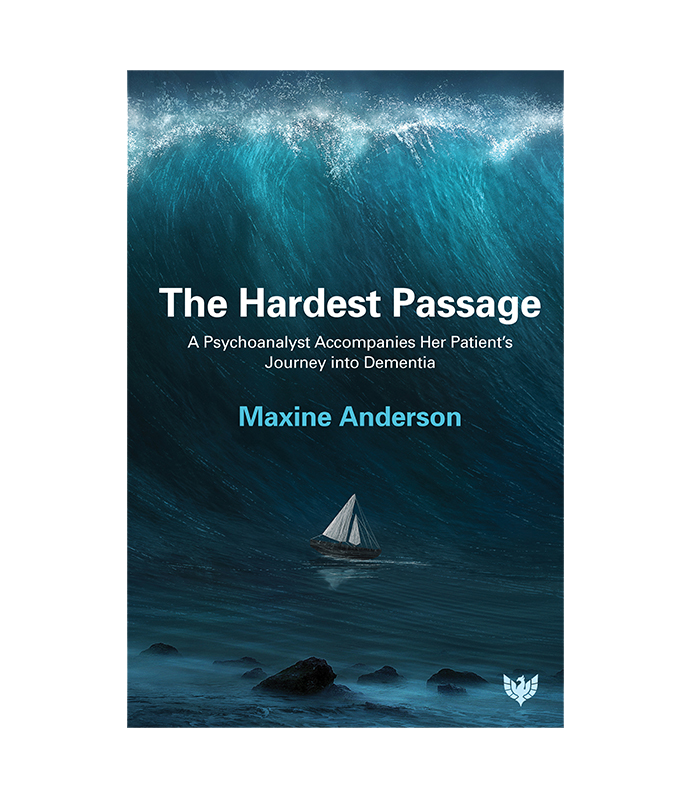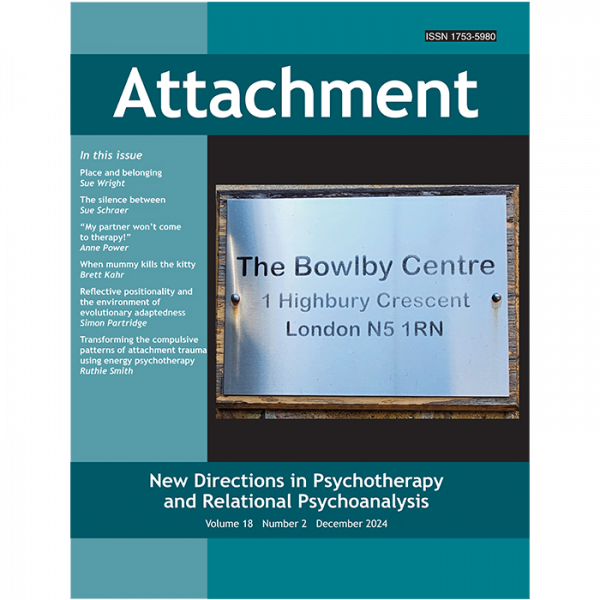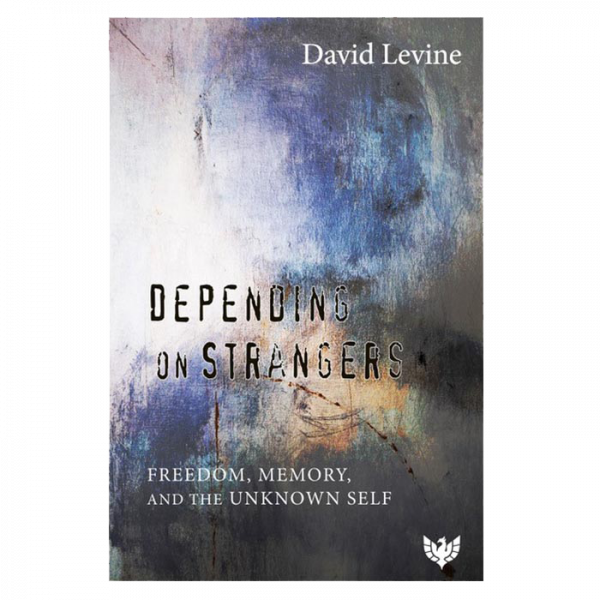When I can remain truly present with my dementing patient, even facing the hard truths about her decline, she feels more deeply accompanied and thus more available to experience the realities and possibilities available at this time of her life.
Maxine Anderson presents her account of three and a half years accompanying her patient’s journey into dementia. Sally, a psychoanalytic patient from several decades ago, returns to therapy as she begins to experience the early signs of Alzheimer’s, a disease she watched her mother descend into. Sessions start with Sally alone but soon involve Sally’s husband David and, later, her carer Connie. Psychoanalyst, patient, husband, and carer all learn together as they navigate the turbulent emotional waters caused by Sally’s condition.
The sessions brought out much to experience and to learn: about loss and the need to mourn, but also about the impulse to turn away out of fear and helplessness. The deepest lessons had to do with the value of patience and attentiveness in the face of fear and confusion. It is difficult to face the recession of capacities in our loved ones and our own helplessness. Yet, turning away to avoid the pain of loss may make the aging individual also turn away from facing the situation, enhancing the isolation and loneliness triggered by their waning capacities.
In navigating this hardest passage, Maxine came to realize that by remaining truly attentive to Sally’s experience, in the midst of loss and frustration, she could reach past the confusion and fear to help Sally feel emotionally accompanied, and thus more available to her own experience and realities. Surprisingly, when Sally felt accompanied, she could better face the hard truths about her decline. In addition, she and David were able to genuinely welcome change, amidst the necessary mourning, and managed to discover a new continent of experience and relationships. The encounter changed the lives of all involved and opened them up to new aspects of their own humanity.
This moving tale presents a unique perspective on living with dementia and is of interest not only to all professionals working with dementia, but also to those accompanying their loved ones on their own hardest passage.





 Maxine Anderson, MD, trained in psychoanalysis in both the US and London, England. She is a training and supervising analyst for several psychoanalytic institutes in North America and is a Fellow of the International Psychoanalytical Association. She has published widely on psychoanalytic topics especially relevant to contemporary Kleinian and Bionian thought. She has published two previous books: The Wisdom of Lived Experience: Views from Psychoanalysis, Neuroscience, Philosophy and Metaphysics (Karnac, 2016) and From Tribal Division to Welcoming Inclusion: Psychoanalytic Perspectives (Routledge, 2019). She lives and practises in Seattle, Washington.
Maxine Anderson, MD, trained in psychoanalysis in both the US and London, England. She is a training and supervising analyst for several psychoanalytic institutes in North America and is a Fellow of the International Psychoanalytical Association. She has published widely on psychoanalytic topics especially relevant to contemporary Kleinian and Bionian thought. She has published two previous books: The Wisdom of Lived Experience: Views from Psychoanalysis, Neuroscience, Philosophy and Metaphysics (Karnac, 2016) and From Tribal Division to Welcoming Inclusion: Psychoanalytic Perspectives (Routledge, 2019). She lives and practises in Seattle, Washington.
Daniel M. Brener, MD –
‘In this tender masterwork, Dr Maxine Anderson takes us on a voyage into progressing dementia. It is a seafarer’s guide for clinicians, family members, and caregivers who are faced with the responsibility of caring for people who are losing mental functioning. While it logs the illness, at a deeper layer, the book records the value of attentive care and commitment which aids the sense of well-being that we all desire, and which may aid the waning patient’s sense of being well-cared for rather than feeling mired in the confusion and terror of receding capacities. The story begins with Dr Anderson’s tender professional care for Sally, a woman struggling with early Alzheimer’s disease, and broadens into a deep insight into the collective care that is required for her and her caregivers over time. Along the way, the reader is drawn into this voyage and experiences the love, loss, and grieving that is part of the dementia experience. This book is a must read for understanding dementia and people who live it every day.’
Elie Debbané, Training and Supervising Analyst, Northwestern Psychoanalytic Society & Institute, Seattle –
‘The fundamental needs of our emotional life emerge more clearly as we face the progressive losses of old age and more forcefully so in early dementia. Maxine Anderson has courageously accepted to accompany her former analysand through that journey. She shares with us the rich story of her experience. The vastness of what is stimulated in the reader is the gift a shared lived experience provides.’
Mary Kay O’Neil, PhD, C.Psych, FIPA, Supervising and Training Psychoanalyst, Canadian Institute of Psychoanalysis –
‘Maxine Anderson braves uncharted waters with her sensitively detailed description of a woman’s journey toward the gradual loss of herself and of her husband/ caretaker’s pain. Dr. Anderson astutely modified her analytic approach to meet their varying needs as the illness progressed. Caringly, she used and contained her own painful observations, uncertainty, and feelings. Thank you for sharing a thoughtful and needed account of The Hardest Passage.’
Salman Akhtar, MD, Emeritus Professor of Psychiatry, Jefferson Medical College; Training and Supervising Analyst, Psychoanalytic Center of Philadelphia –
‘Maxine Anderson’s monograph describing her work with a patient whose cognitive abilities slowly descend into the void of dementia is a shining example of “applied clinical psychoanalysis.” Deeply humane, poignant, and engaging, it not only delves into the themes of loss, fear, helplessness, and intellectual decline, but also those of dignity, resilience, and the power of human connectedness. Anderson’s approach embodies the tender core of psychoanalytic acumen at its best!’